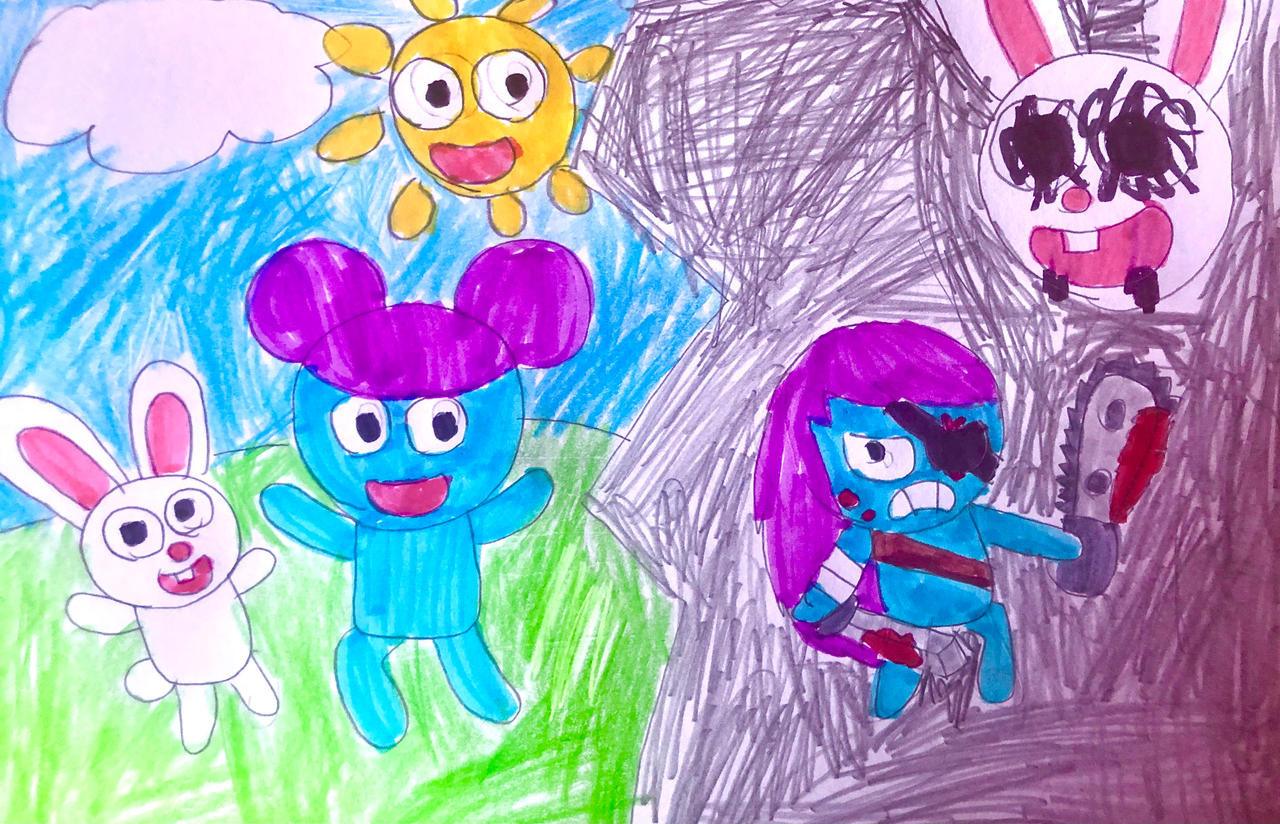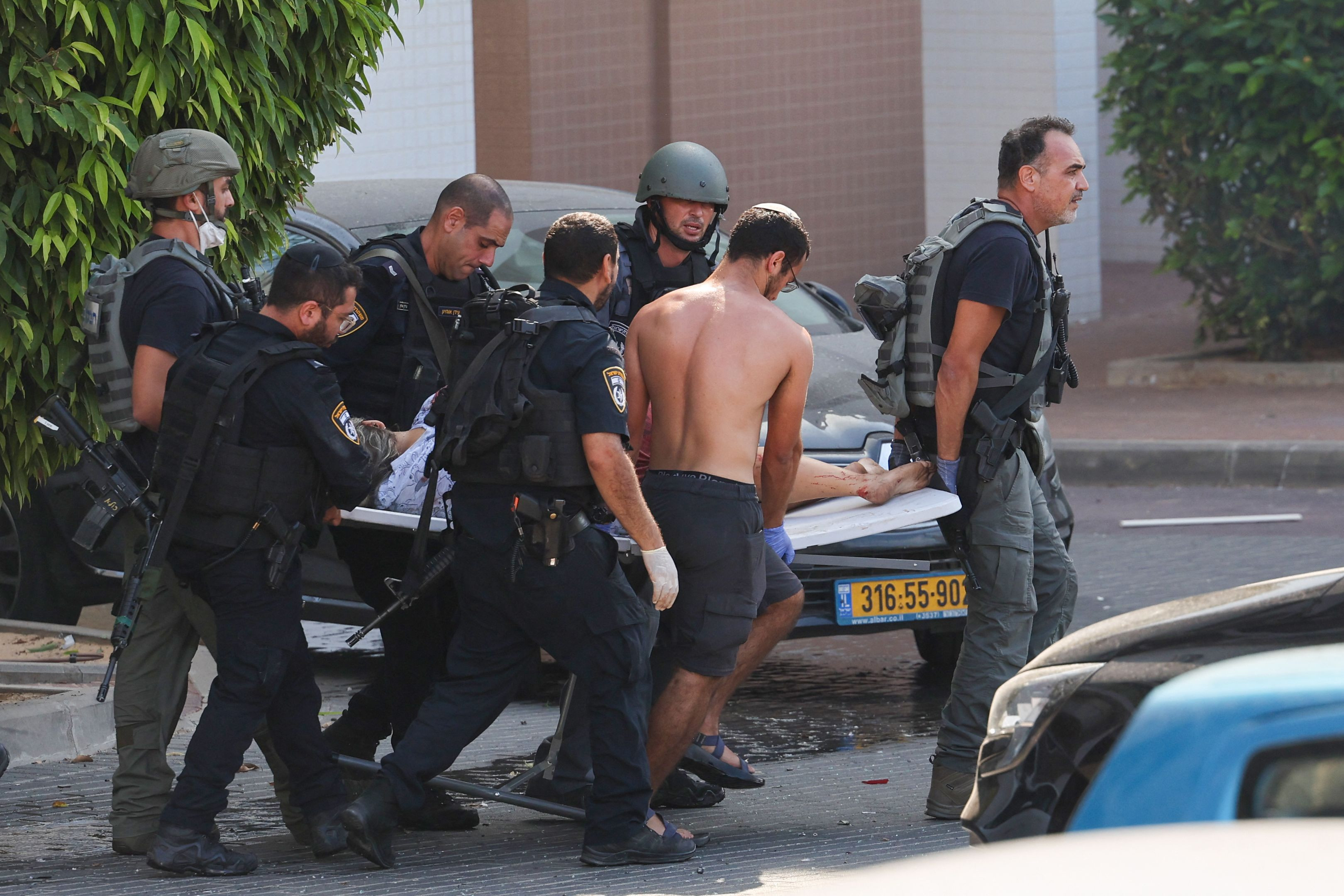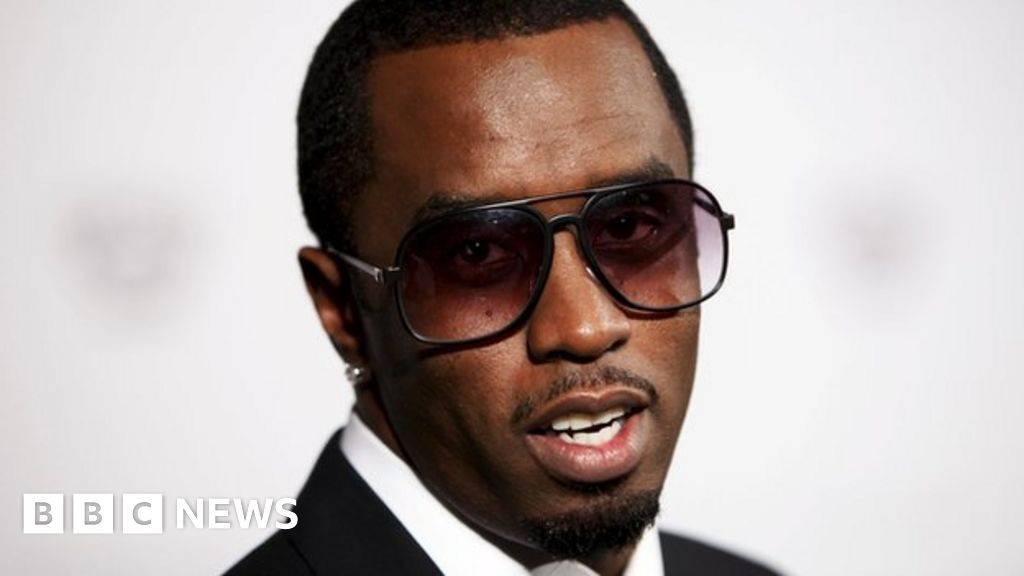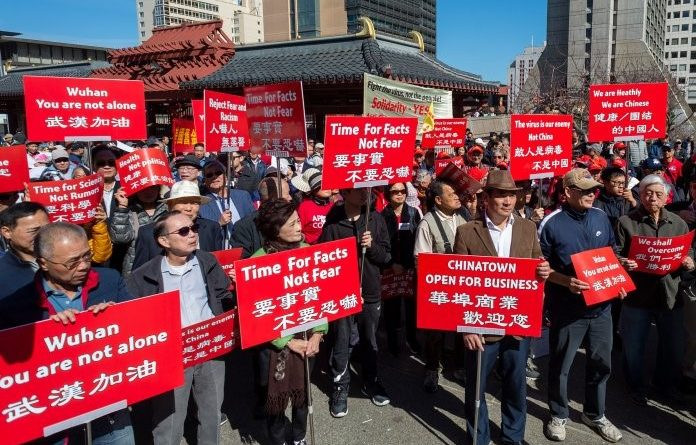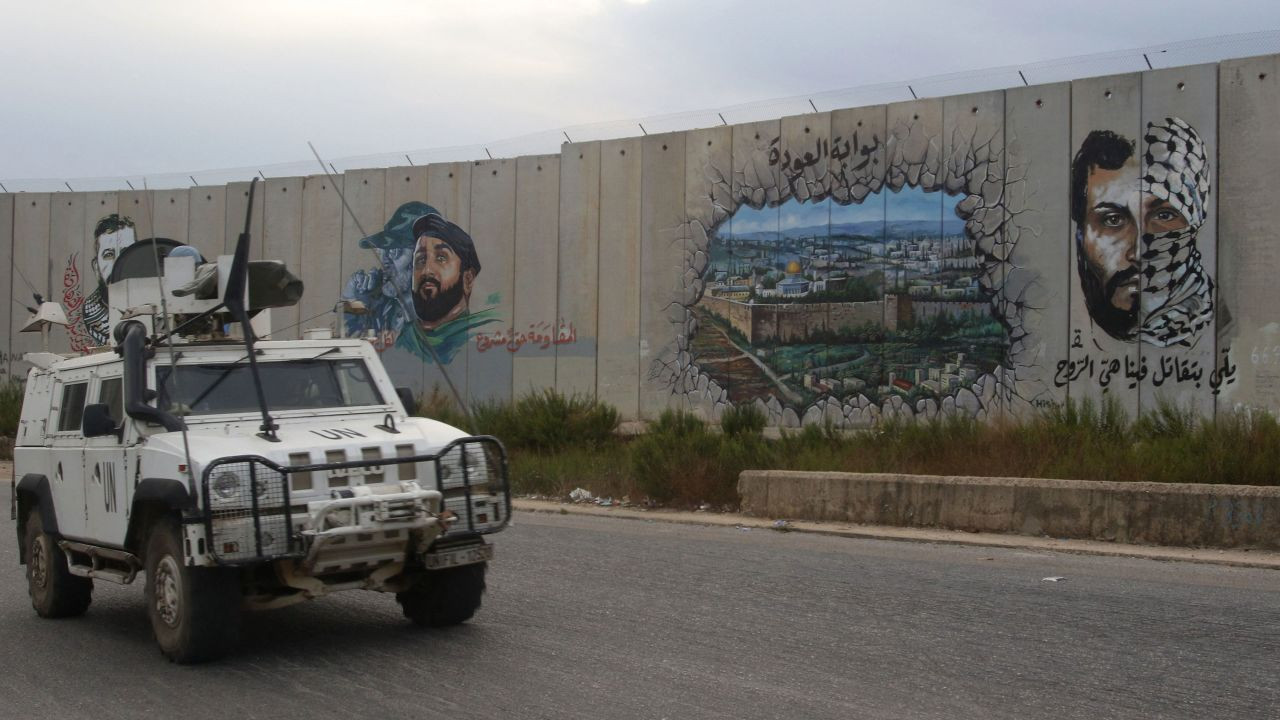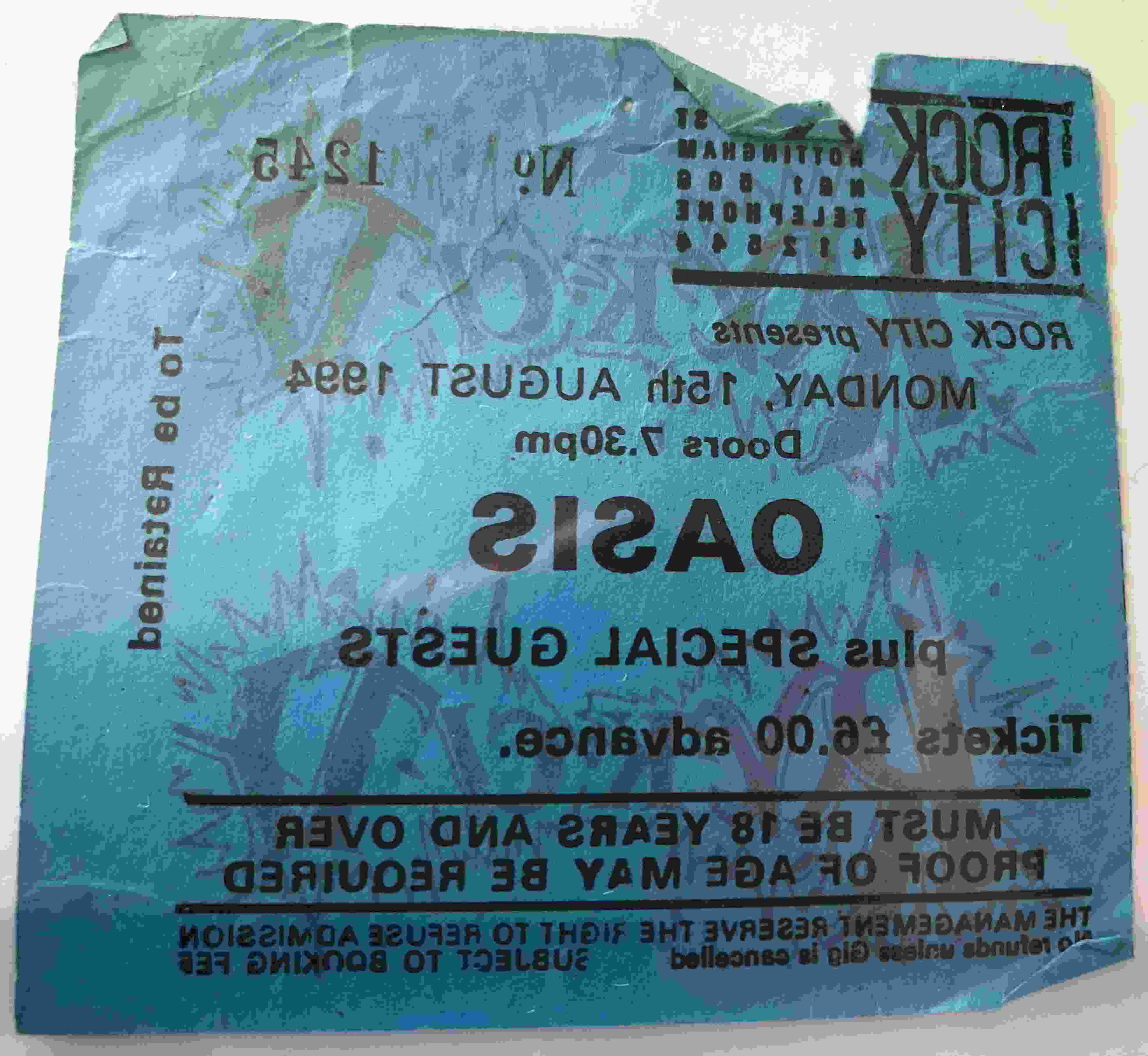After rushing to comfort Israel as it grieved the worst attack on Jews since the Holocaust, President Joe Biden last year pledged America would stand with the country in its dark days and the good ones he insisted would come. At the time, no one knew the international and domestic political consequences of his promise. An ensuing war has proved the existential role the US plays in Israel’s survival but also severely strained the alliance. It has also exposed and widened some of America’s most profound political divides ahead of an already tumultuous election between Vice President Kamala Harris and former President Donald Trump next month. The October 7, 2023, Hamas terror attacks, which killed 1,200 people, did not just transform the Middle East’s strategic balance as Israel confronted Hamas, then Hezbollah, and traded fire with their sponsor, its archenemy, Iran. Like the September 11 attacks in 2001, the Hamas horror set off a chain of events that affected countless lives, unleashing political disturbances thousands of miles away. Militarily, the United States and its allies have twice staged unprecedented operations to protect Israel from a barrage of missiles and drones from Iran. The US has also repeatedly bombed Iran-backed Houthi rebels in Yemen who have launched attacks on international shipping in the Red Sea in the wake of October 7. Amid fears in Washington of a full-on Middle East war, the vulnerability of US troops in the region was tragically driven home in January when three US service personnel were killed in an attack on a base in Jordan. At home, the fallout of the Hamas attacks has coincided with the toxic politics of a presidential election year. Campus protests underscored the splits in the Democratic Party, which soon saw unprecedented political upheaval with Biden abandoning his reelection bid and backing Harris just months before the election. In the new race between Harris and Trump, events in the Middle East continue to set off reverberations that could influence the outcome of the election. A horrifying wave of antisemitism, meanwhile, has left many Jews wondering whether they are safe in America. Israel’s onslaught on Hamas in Gaza, which has killed tens of thousands of civilians, may have finally shattered US hopes of a two-state solution. And it’s turned into the greatest foreign crisis of the Biden administration at a time when the US-led global system is splintering under challenges from Russia and rising China. Israel’s escalation of the war against Hezbollah in Lebanon threatens to embroil Washington and spark a direct clash with Iran, which has so far been avoided in a near half-century of antagonism since the Islamic revolution. Biden has been a staunch supporter of Israel for decades, but his record did not prevent growing suspicion and disagreements with the most right-wing Israeli government in history. Prime Minister Benjamin Netanyahu has repeatedly spurned the US president’s attempt to mitigate the civilian cost of the war in Gaza and has disregarded Washington’s priorities when US and Israeli interests diverged. As a result, the Biden administration has suffered a significant erosion of its authority on the international stage and its foreign policy priorities have been threatened. Months of US shuttle diplomacy involving Secretary of State Antony Blinken, CIA Director William Burns and other senior officials has yielded only limited progress in freeing hostages in Gaza. And a deal that would forge a ceasefire with Hamas seems more distant than ever. Often, it’s appeared that the US wanted an agreement far more than Netanyahu or Hamas leader Yahya Sinwar, who embedded Hamas forces in civilian areas, adding to the war’s carnage. Biden’s personal credibility has also been damaged by the defiance of Netanyahu, who has not hesitated to intervene in US domestic politics amid an apparent preference for Republicans lined up behind Trump. Weeks after the October 7 attacks, it seemed Netanyahu was headed for political oblivion, with his image as Israel’s ultimate protector destroyed by the darkest day in the country’s history. But his tenacious endurance means it’s now almost certain he will outlast Biden, who leaves office in January. The widening war that the president will bequeath to either Trump or Harris will be a blot on the legacy of a statesman who regarded himself as a foreign policy expert. The Hamas terror attacks – and Israel’s response – have laid bare and widened splits in American society and domestic politics. Washington has been involved in mediating Middle East peace for several generations. But the Israeli-Palestinian conflict has never become such a treacherous domestic political issue as it did after October 7. Footage of Israel’s retaliation against Hamas in Gaza and harrowing scenes of Palestinian children and civilians killed caused an anti-Israel backlash on the left that created perilous political pressure for Biden and then Harris. Related article Harris to mark anniversary of October 7 attacks with tree planting at her residence Fury among progressives at Israel and the Biden administration’s failure to rein in Netanyahu divided the Democratic coalition. Thousands of Arab American voters and others refused to support Biden in the primaries, and the prospect of them sitting out next month’s election or voting third party, especially in a critical swing state like Michigan, could doom Harris’ White House hopes. While he was still running for president, Biden was repeatedly interrupted by pro-Palestinian protests and confronted by banners that read, “Genocide Joe,” referring to his failure to do more to spare Palestinian civilians. Harris is now struggling to perform the same treacherous balancing act that long thwarted Biden. She must prioritize US foreign policy priorities, a political imperative to stand with Israel, and seek to temper the unrest inside the Democratic Party over the war. In a sign of still-deep concern over the political blowback, Harris last week traveled to Michigan to meet Arab American leaders. But her struggle was evident in advance excerpts of an interview with CBS’ “60 Minutes” due to air Monday. “The work that we do diplomatically with the leadership of Israel is an ongoing pursuit around making clear our principles, which include the need for humanitarian aid, the need for this war to end, the need for a deal to be done, which would release the hostages and create a ceasefire,” Harris said. “And we’re not going to stop in terms of putting that pressure on Israel and in the region, including Arab leaders,” she added. She insisted that, contrary to appearances, Washington had significantly influenced Netanyahu’s strategy. “The work that we have done has resulted in a number of movements in that region by Israel that were very much prompted by or a result of many things, including our advocacy for what needs to happen in the region,” she said. Netanyahu has long been a consummate player in American politics, dating all the way back to the Clinton administration in the 1990s. But his canny interventions designed to keep himself in power have reached new levels in the last year. He has found common interest with Republicans who sought to use the war to damage Biden as the election loomed. In July, addressed the US Congress during a trip that was largely initiated by the GOP and that infuriated many Democrats. Netanyahu appears to be banking on Trump’s return to office. The former president largely accommodated the Israeli leader’s hawkish policies during his first term, and he has used the war after October 7 to embroider his own narrative that the world is spinning toward World War III on Democrats’ watch. The US political split over Israel’s intentions intensified over the weekend, after Biden said that Israel shouldn’t respond to Iranian ballistic missile attacks over the last week by striking at Iranian nuclear facilities. Many of Netanyahu’s supporters in the US believe that after decapitating top leaders of Hezbollah and apparently degrading the military capacities of the Lebanon-based Iranian-backed group, the time will never be better for Israel to try to interrupt Tehran’s nuclear program, which the US says may be only weeks short of being able to make a bomb. But there are questions about how far Israel could set back the program given that the facilities are dispersed and deep underground. Many experts also fear that such an attack could unleash an apocalyptic war that drags in the United States. Trump, seeking to portray Biden and Harris as weak, seems to be goading Netanyahu to go for it. “What do you think about Iran?” Trump asked an audience at a town hall in the battleground state of North Carolina on Friday. “Would you hit Iran? And (Biden) goes: ‘As long as they don’t hit the nuclear stuff.’ That’s the thing you want to hit, right? I said, I think he got that one wrong. Isn’t that the one you’re supposed to hit?” Reverberations in the United States from the October 7 attacks cut far deeper than their impact on the presidential election. They also had a traumatic impact on American Jews. The notion that Israel is a safe haven for the global Jewish diaspora was compromised by the attacks on kibbutzim and a music festival from Hamas terrorists who burst out of Gaza. Many American Jews have felt unsafe at home amid antisemitism provoked both by Hamas’ attacks and some of the protests over Israel’s response. A wave of pro-Palestinian protests at US colleges also occasionally crossed into antisemitism. Related article ‘Shocking,’ historic spike in anti-Jewish threats across the US, ADL says Jonathan Greenblatt, the CEO of the Anti-Defamation League, warned on CNN’s “State of the Union” on Sunday that he’d never seen such a surge in hate and antisemitic conspiracy theories in the United States. “We are honoring, commemorating, this solemn anniversary of the murder of 1,200 people simply because they were Jewish, right?” Greenblatt told Dana Bash. “They were slaughtered, they were tortured, they were killed, they were kidnapped. And yet, here in the United States, that triggered a tsunami of anti-Jewish hate.” According to the ADL, there have been more than 10,000 antisemitic incidents in the US since the October 7 attacks, including more than 8,000 instances of verbal or written harassment, more than 1,800 acts of vandalism and more than 150 physical assaults. Trump has also contributed to the angst. The ex-president has used antisemitic tropes about dual loyalties to Israel and the US in saying that Jewish voters who back Biden and Harris should have their “head examined” and that if he loses next month, Jewish voters will be partly to blame.
What’s next?
The next occupant of the White House will inherit one of the most perilous crises facing a modern president. If Harris wins, she will have to chart her own policy on the war after being unwilling to address her views outside the constraints of Biden’s approach. She will likely face the same tests to her authority and the complications of a clash between US and Israeli interests that have bedeviled Biden since there seems little chance a widening war will be concluded in the next few months. And while Trump is often seen as likely to offer Netanyahu a blank state, his antipathy to US involvement in foreign wars – especially in the Middle East – may mean that he is less open to an escalation if he is in office when such a step could impinge upon his own political standing. Whatever happens next month, the US will remain deeply entangled in the new realities of the Middle East after October 7, 2023. © 2024 Cable News Network. A Warner Bros. Discovery Company. All Rights Reserved. CNN Sans ™ & © 2016 Cable News Network. The Israeli military said it struck Hezbollah intelligence and weapons storage, as rocket hits Haifa injuring at least 5 people
A Year of Mourning and War
Ceremonies were held across Israel on Monday as the country marked the first anniversary of the October 7 Hamas attacks, with the war it launched in response raging in Gaza and escalating in Lebanon, while conflict threatened to spread across the Middle East.
In the hours leading up to the anniversary, Israel bombed targets in Beirut and Gaza, while Hezbollah rockets struck Haifa, Israel’s third-largest city, causing damage to buildings, police said. Israeli media reported 5 people were wounded in rocket attacks in Haifa and the city of Tiberias. The Israeli airstrikes battered Beirut’s southern suburbs, in what were among the most intense bombardment of the Lebanese capital since Israel sharply escalated its campaign against Hezbollah last month. Large fireballs lit the darkened skyline and booms reverberated across Beirut. The Israeli military said fighter jets struck targets in Beirut belonging to Hezbollah’s intelligence headquarters and weapons storage facilities. It said strikes also targeted Hezbollah in southern Lebanon. Israel announced early on Monday that a soldier had been killed along the country’s northern border with Lebanon, the latest casualty since the military launched ground operations targeting Hezbollah positions last week. Meanwhile, four projectiles were fired from the Gaza Strip just minutes after the country began to formally commemorate the October 7 attacks, according to the IDF. The Israeli military confirmed early Monday it had carried out strikes on al-Aqsa hospital in central Gaza, claiming it had become the base for a Hamas “command and control complex”, without providing evidence. Ceremonies and protests in Jerusalem and Israel’s south were scheduled to begin about 6.29am, the hour in which Hamas-led militants launched rockets into Israel last year. The Hamas attacks that day killed 1,200 people and more than 250 were taken hostage, according to Israeli figures. The following Israeli offensive in Gaza laid waste to the densely populated coastal territory and killed almost 42,000 people, according to Palestinian health authorities. Security forces were on high alert across Israel on Monday, the military and police said, anticipating possible attacks planned for the anniversary. Families of hostages still held in Gaza – about 100, a third of whom are said to be dead – gathered near prime minister Benjamin Netanyahu’s Jerusalem residence and stood during a two-minute siren, replicating a custom from Holocaust Remembrance and Memorial Day. “We are here to remind [the hostages] that we haven’t forgotten them,” said Shiri Albag, whose daughter Liri is among the captives. Her message to Netanyahu: “We won’t let you rest until all of them are back, every last one of them,” she told the crowd, which hoisted the faces of the hostages. Elsewhere, Israeli president Isaac Herzog held a moment of silence at 6.29 am – the moment the attack began – at kibbutz Reim, the site of the Nova music festival where at least 370 people were killed. The memorials came as the region awaited Israel’s response to an unprecedented missile attacks from Iran last week. Israeli defence minister Yoav Gallant said on Sunday Israel would decide independently how to respond to Iran even though it was closely coordinating with the US. “Everything is on the table,” Gallant, who is due to meet US defence secretary Lloyd Austin on Wednesday, said in an interview with CNN. “Israel has capabilities to hit targets near and far – we have proved it.” While the US has said it would not support strikes on Iranian nuclear sites, President Joe Biden said last week that Israeli attacks on Iran’s oil facilities were being discussed. Reuters, Agence France-Presse and the Associated Press contributed to this report Families of those killed attended the memorial, many of them crying, as Herzog met the crowd, an AFP correspondent reported.
Commemorations Amid Ongoing Conflict
Israel began its commemorations Monday of the one-year anniversary of Hamas’s deadly October 7 attack, with an outpouring of emotion at vigils at massacre sites and rallies calling for the return of hostages. Ceremonies and events are planned across Israel and in cities around the world to mark the anniversary of the unprecedented attack by Palestinian militants from the Gaza Strip, which claimed more than 1,200 lives. President Isaac Herzog began the day with a moment of silence at 6:29 am — the moment the attack began — at Kibbutz Reim, the site of the Nova music festival where at least 370 people were killed by heavily armed Hamas fighters in the deadliest attack on October 7. Families of those killed attended the memorial, many of them crying, as Herzog met the crowd, an AFP correspondent reported.
On Sunday, tens of thousands of people attended events in cities around the world, both to pay tribute to the victims of Hamas’s attack and to voice support for the Palestinian people after a year of war in the Gaza Strip. “Coming to this event one year after this terrible massacre that happened on October 7, it’s very touching,” said organiser Solly Laniado at a ceremony Sunday in Tel Aviv to remember the victims of the Nova attack. The anniversary comes with Israel still fighting in Gaza and engaged in a fresh war to the north in Lebanon against Hamas ally Hezbollah. It is also preparing its retaliation against Tehran over an Iranian missile attack last week, raising fears of an even wider conflict.
Rocket Fire Continues
The Israeli army said Monday that at least four projectiles were fired from Gaza just minutes after the commemorations began, adding it had “struck Hamas launch posts and underground terrorist infrastructure throughout the Gaza Strip”. Hamas’s armed wing said in a statement that its fighters had fired rockets at “enemy gatherings” at Rafah crossing, Kerem Shalom crossing and Kibbutz Holit near the border with Gaza. The military also said sirens sounded Monday morning in northern Israel, which has seen daily rocket fire from neighbouring Lebanon.
Rally for Hostages
The October 7 attack by Hamas militants resulted in the deaths of 1,205 people on the Israeli side, mostly civilians, according to an AFP tally based on the latest official Israeli figures. Some 251 people were captured and taken as hostages to the Gaza Strip, of whom 97 are still held captive in the coastal territory, including 37 the Israeli military says are dead. Families of hostages and supporters rallied in Tel Aviv before dawn Monday to call for their return, holding banners and placards with pictures of the captives. During a one-week truce in late November, 105 hostages were released in exchange for 240 Palestinian prisoners.
Netanyahu Vows Victory
In the western Israel city of Sderot, less than two kilometres (just over a mile) from the Gaza border, President Herzog will later on Monday lead a ceremony to remember victims of the war against Hamas. Prime Minister Benjamin Netanyahu on Sunday vowed to achieve victory and said the military “completely transformed reality” in the year since Hamas’s attack. Netanyahu had pledged to “crush… and destroy” Hamas as fighting began last October, but troops have returned to several areas across Gaza where they had previously conducted operations, only to find militants regrouping.
Israel Encircles Jabaliya
In northern Gaza, the Israeli military said it had encircled the Jabaliya area after indications Hamas was rebuilding there despite a year of air strikes and fighting. Rescuers said 17 people, including nine children, had been killed on Sunday by Israeli air strikes on the area. In late September Israel turned its focus north, intensifying military action against the Iran-backed Hezbollah movement, which had been routinely sending rockets over the border from Lebanon in support of Hamas. Israeli air strikes on targets in Lebanon have killed more than 1,110 people and forced more than one million to flee their homes. Israel says it aims to allow tens of thousands of Israelis displaced by almost a year of Hezbollah rocket fire into northern Israel to return home.
‘Terrible Blow’
“A year ago, we suffered a terrible blow. Over the past 12 months, we have completely transformed reality,” Netanyahu said during a visit to the Lebanon border, according to his office. Hamas on Sunday called the October 7 attack “glorious” and said the Palestinians were “writing a new history with their resistance”. The militant group, which has ruled the Gaza Strip since 2007, launched its attack by firing thousands of rockets towards Israeli border communities in the early hours of October 7. At the same time Hamas fighters stormed across the border and attacked nearly 50 different sites, including kibbutzim communities, army bases and the Nova music festival. Militants killed festival-goers en masse and went door-to-door in farming communities, shooting residents dead in their homes. Hours after the attack, Israel launched a blistering military offensive on Gaza that has reduced large swaths of the territory to rubble, and displaced nearly all of its 2.4 million residents at least once amid an unrelenting humanitarian crisis. In Gaza, at least 41,870 people have been killed since the start of the Israeli offensive, a majority of them civilians, according to the health ministry in the Hamas-run Palestinian territory. The figures have been deemed to be reliable by the United Nations. READ ALSO: Israel Bombards Beirut After Deadliest West Bank Strike
‘The world stopped’
“If I had known that the war would last a whole year, I would never have moved from northern Gaza,” Mona Abu Nahl, 51, told AFP in Deir al-Balah, in the central Gaza Strip. “We no longer have the energy to bear all this… I would have put a tent over my destroyed house and sat down, rather than endure this humiliation, hunger and displacement,” she said. “It feels like the world stopped on October 7,” said another displaced person, Israa Abu Matar, 26. “I have grown old while watching my children hungry, scared, having nightmares and screaming day and night from the sound of the bombing and shells.” The fighting in Gaza and Lebanon has been accompanied by the threat of war with Iran, which last week fired more than 200 missiles at Israel in retaliation for the death of Hezbollah leader Hassan Nasrallah and Iranian general Abbas Nilforoushan in a September 27 strike on Beirut. Tehran on Sunday said it had prepared a plan to hit back against any possible Israeli reprisal, before Israel’s Defence Minister Yoav Gallant warned Iran it could end up looking like Gaza or Beirut. AFP © document.write( new Date().getFullYear()) Channels Incorporated Limited. All rights reserved.




